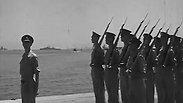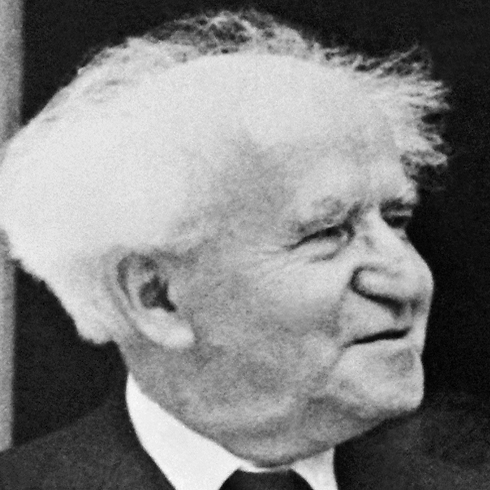
Why did Ben-Gurion stop 1948 conquest of Judea and Samaria?
Palmach fighters were ordered to take over the territories during War of Independence, but prime minister ordered them back; researchers have several explanations.
The mission should have altered the face of the Middle East: In 1948, a special force of Palmach fighters was dispatched with explicit orders to conquer Judea and Samaria.
At the last minute, however, then-prime minister David Ben-Gurion ordered the force to back down, thus postponing the takeover of the area by 19 years.
Why did Ben-Gurion halt the push into Bethlehem and its surroundings? Did the Palmach forces plan to further expand their conquests after the War of Independence? And what would Israel look like today if Judea and Samaria had been added to the state immediately upon its establishment?
Towards the end of the War of Independence, with the initiative firmly in the hands of the newly created Israel Defense Forces, the fledgling state's fighters carried out a series of operations against the Arab armies with the objective of capturing areas of land and creating a strategic depth for the tiny country.
Almost 20 years before the advance into Judea and Samaria in the 1967 Six-Day War, Palmach fighters dreamed of securing these territories. On the morning of October 19, 1948, Harel Brigade forces set out from the area of today's Beit Shemesh and captured large parts of the Judean plains. They advanced up the Judean Hills, seized Nes Harim and Tsur Hadassah, and reached the village of Hussan, on the outskirts of Bethlehem. Moments before pressing on, they suddenly received the order to withdraw.
Why were they stopped? War of Independence researchers offer several explanations.
One suggests that the entire operation was designed only "to engage" the enemy so as to facilitate the conquest of the south. At a cabinet meeting on October 6, two weeks before the start of the operation, Ben-Gurion stated: "The Egyptian force in the south is in a terrible state. It's spread out across a long line and can be cut off with the use of a small force, and all of southern Israel, through to Jerusalem, will be in our hands. We can move into Hebron and Bethlehem and no one will stop us if forces don't come from the north."
At a General Staff meeting that same day, the commander of the southern front, Yigal Allon, proposed taking the Bethlehem area and linking up with the besieged Mount Scopus through East Jerusalem.
But it appears there was another reason behind the decision to halt the operation – Ben-Gurion's concerns about the Christian world's reaction to the conquest of the Church of the Nativity in Bethlehem. Others argue that at the height of the war, the country's leaders reached a behind-the-scenes agreement with the Arab armies – you leave the coastal plain alone, and we won't touch Judea and Samaria.
Such was the frustration of the Palmach fighters who were ordered to retreat that the commander of the Harel Brigade, Yosef Tabenkin, decided to issue another order and grab, without authorization, the Bethlehem and Hebron Hills area. In the order he issued, which has now come to light for the first time, Tabenkin precisely defines the objective – "the taking of Beit Jala and Bethlehem with the purpose of achieving the conquest of Jericho."
The capture of Bethlehem and the Hebron Hills would certainly have changed the borders of Israel at the end of the War of Independence and would have had a lasting effect on the political situation in the region.
"We were amazed to discover in the archives that the Palmach didn't only dream of controlling Gush Etzion, but also went as far as formulating an operational plan and issuing the order," says Yaron Rosenthal, the principal of the Kfar Etzion Field School.
"The only thing that stopped the Palmach from liberating the area was its decision. If they had gone for it, we wouldn't be speaking today about the territories, but only Samaria instead."












